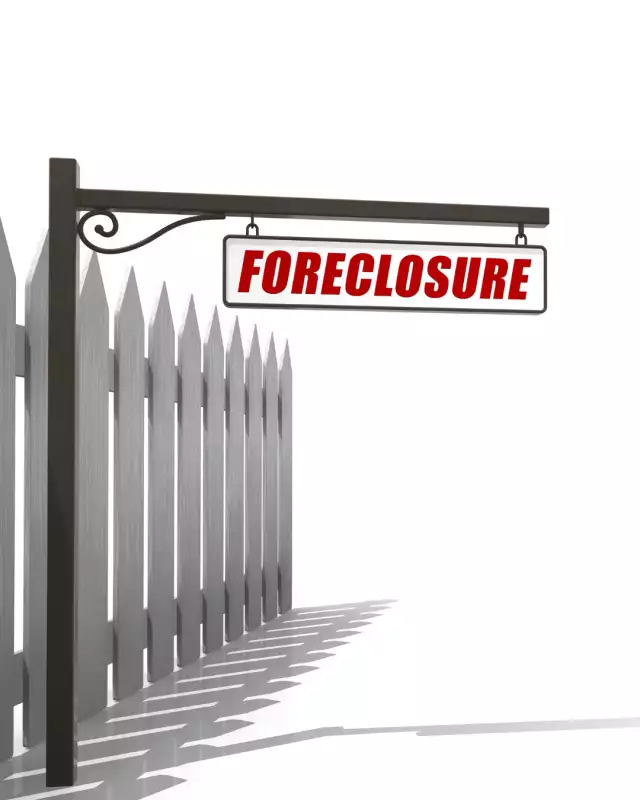The Foreclosure Abuse Prevention Act: Protecting Homeowners' Rights
The Foreclosure Abuse Prevention Act: Protecting Homeowners' Rights
Foreclosure is a legal process that enables lenders to seize and sell a property when the borrower is unable to make mortgage payments. Unfortunately, this process has often been prone to abuse, with lenders resorting to unethical and illegal tactics to foreclose on homes. To curb these abuses, the Foreclosure Abuse Prevention Act (FAPA) was enacted. In this blog post, we'll take a closer look at the FAPA, its provisions, and how it protects homeowners from foreclosure abuse.
What is the Foreclosure Abuse Prevention Act (FAPA)?
The FAPA is a federal law that was enacted in 2010 as part of the Dodd-Frank Wall Street Reform and Consumer Protection Act. The FAPA is designed to prevent foreclosure abuses by regulating the practices of mortgage servicers, who are responsible for collecting mortgage payments and managing the foreclosure process. The act provides a number of protections to homeowners, including the right to request a loan modification, the requirement for servicers to communicate with borrowers, and restrictions on dual-tracking, where a servicer is pursuing foreclosure at the same time as a loan modification.
The provisions of the FAPA:
- Loan Modification Requirement: The FAPA requires mortgage servicers to consider all available loan modification options before starting the foreclosure process. If the servicer determines that the homeowner is eligible for a loan modification, the servicer must provide the homeowner with a written offer.
- Communication with Borrowers: The FAPA requires mortgage servicers to communicate with borrowers throughout the foreclosure process. This includes providing the borrower with information about their loan, the foreclosure process, and any loan modification options that may be available.
- Dual-Tracking Restrictions: The FAPA restricts mortgage servicers from dual-tracking, which is the practice of pursuing foreclosure while at the same time negotiating a loan modification with the borrower. The FAPA requires servicers to halt the foreclosure process if the homeowner is being considered for a loan modification.
- Right to Appeal: The FAPA gives homeowners the right to appeal a servicer's decision to foreclose. This gives homeowners an opportunity to present evidence and argue their case before a neutral party.
- Penalties for Violations: The FAPA provides penalties for mortgage servicers who violate the provisions of the act. This includes monetary fines and the possibility of criminal charges for particularly egregious violations.
What are the rules for foreclosure in California?
In California, the foreclosure process is regulated by a combination of state and federal law. The following are some of the key rules for foreclosure in California:
- Notice of default: Before a lender can start the foreclosure process, they must first send the homeowner a notice of default. This notice must provide the homeowner with information about the amount owed, the name and address of the servicer, and instructions for curing the default.
- Right to cure: California law gives homeowners the right to cure their default by paying the missed payments and any related fees within a specified period of time.
- Notice of sale: If the homeowner does not cure the default, the lender must then send a notice of sale. This notice must be sent at least 90 days before the date of the sale and must include the date, time, and place of the sale.
- Dual-tracking restrictions: California law restricts the practice of "dual-tracking," which occurs when a lender starts the foreclosure process while simultaneously considering the homeowner's request for a loan modification.
- Homeowner Bill of Rights: In 2012, California enacted the Homeowner Bill of Rights, which provides additional protections for homeowners facing foreclosure. For example, the law requires that a single point of contact be designated to communicate with the homeowner throughout the foreclosure process, and it restricts the use of "robo-signing" and other deceptive practices.
- Judicial foreclosure: California is a non-judicial foreclosure state, meaning that most foreclosures are conducted outside of the court system. However, if the loan is secured by a deed of trust instead of a mortgage, the lender may initiate a judicial foreclosure if the homeowner contests the non-judicial foreclosure.
It's important to note that the foreclosure process can be complex and may vary depending on the specific circumstances of each case. If you are facing foreclosure in California, it's recommended that you seek the advice of a knowledgeable attorney or housing counselor.
FAQ:
Q: Who is protected under the Foreclosure Abuse Prevention Act (FAPA)?
A: The FAPA provides protections for homeowners who are facing foreclosure and are serviced by a mortgage servicer that is subject to the provisions of the act.
Q: What is the purpose of the FAPA?
A: The purpose of the FAPA is to prevent foreclosure abuses by regulating the practices of mortgage servicers. It provides homeowners with a number of protections, including the right to request a loan modification, the requirement for servicers to communicate with borrowers, restrictions on dual-tracking, the right to appeal a servicer's decision to foreclose, and protections against penalties for violations.
Q: What rights do homeowners have under the FAPA?
A: Under the FAPA, homeowners have the right to request a loan modification, the requirement for servicers to communicate with borrowers, restrictions on dual-tracking, the right to appeal a servicer's decision to foreclose, and protections against penalties for violations.
Q: Is the FAPA only applicable to homeowners facing foreclosure?
A: Yes, the FAPA provides protections specifically for homeowners facing foreclosure.
Q: Who is responsible for enforcing the provisions of the FAPA?
A: The provisions of the FAPA are enforced by various federal agencies, including the Consumer Financial Protection Bureau (CFPB) and the Department of Housing and Urban Development (HUD).
Q: What happens if a mortgage servicer violates the provisions of the FAPA?
A: If a mortgage servicer violates the provisions of the FAPA, they may face monetary fines and other penalties. In severe cases, mortgage servicers may also face criminal charges.
The Foreclosure Abuse Prevention Act (FAPA) is a critical piece of legislation that provides important protections for homeowners facing foreclosure.It helps to prevent foreclosure abuses and ensure that the foreclosure process is conducted fairly and transparently. If you are facing foreclosure, it is important to understand your rights under the FAPA and to seek the assistance of a knowledgeable attorney if you believe that your rights have been violated.


